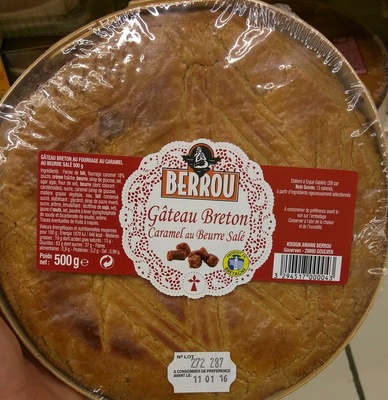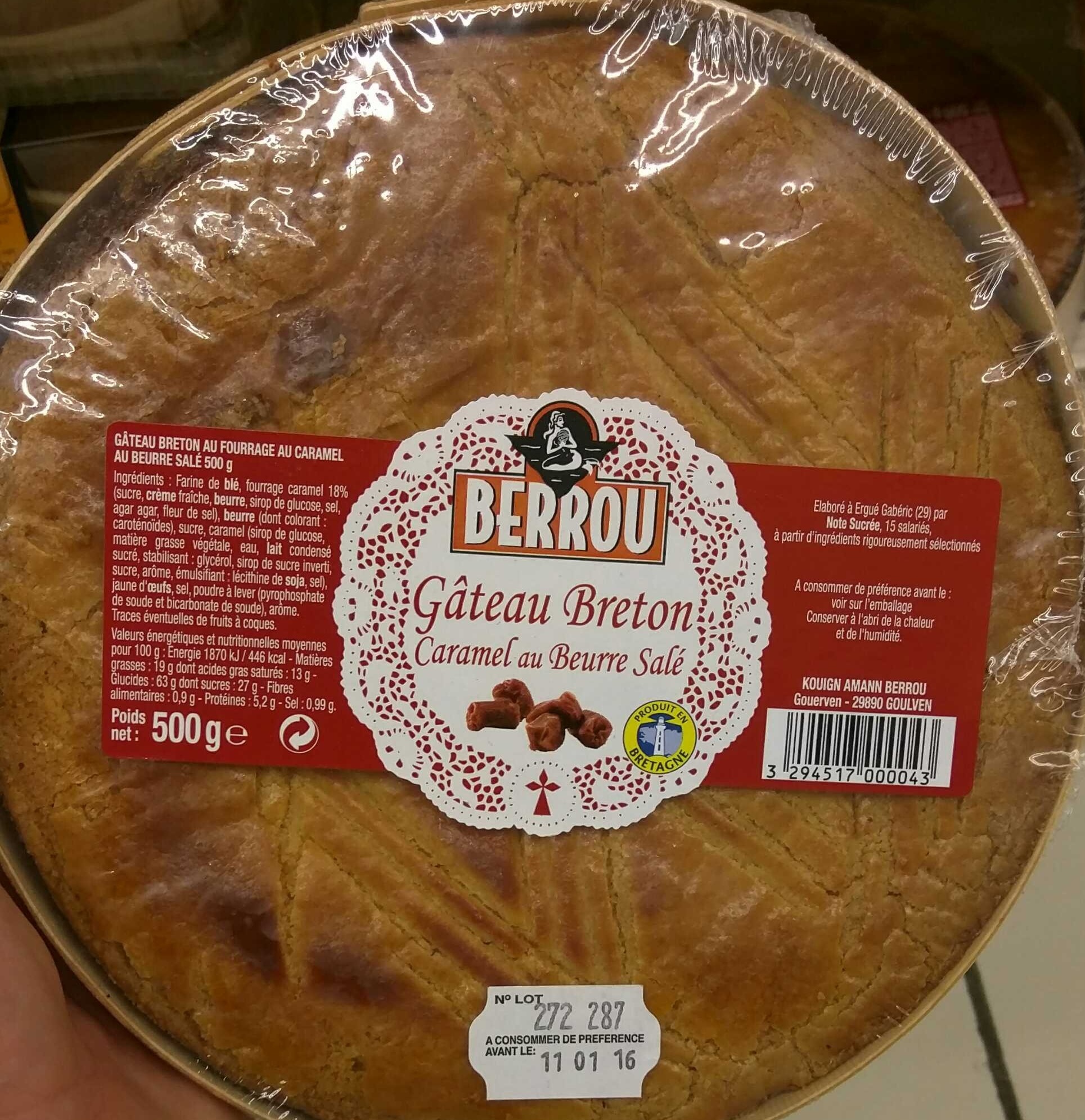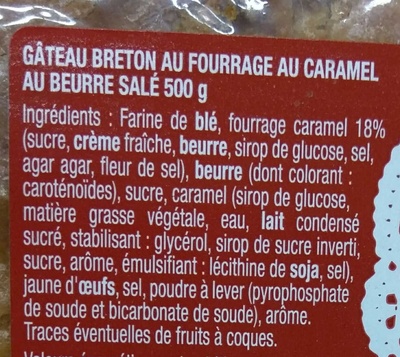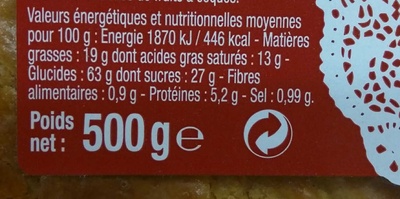Gâteau breton Caramel au beurre salé - Berrou - 500 g
This product page is not complete. You can help to complete it by editing it and adding more data from the photos we have, or by taking more photos using the app for Android or iPhone/iPad. Thank you!
×
Barcode: 3294517000043 (EAN / EAN-13)
Common name: Gâteau breton au fourrage au caramel au beurre salé
Quantity: 500 g
Packaging: Plastic, Bag, Cardboard, Tray
Brands: Berrou
Categories: Snacks, Desserts, Sweet snacks, Biscuits and cakes, Cakes, Breton cakes
Labels, certifications, awards: Produced in Brittany
Manufacturing or processing places: France, Bretagne
Stores: Carrefour
Countries where sold: France
Matching with your preferences
Environment
Packaging
Transportation
Report a problem
Data sources
Product added on by phoenix
Last edit of product page on by packbot.
Product page also edited by quechoisir.
If the data is incomplete or incorrect, you can complete or correct it by editing this page.










